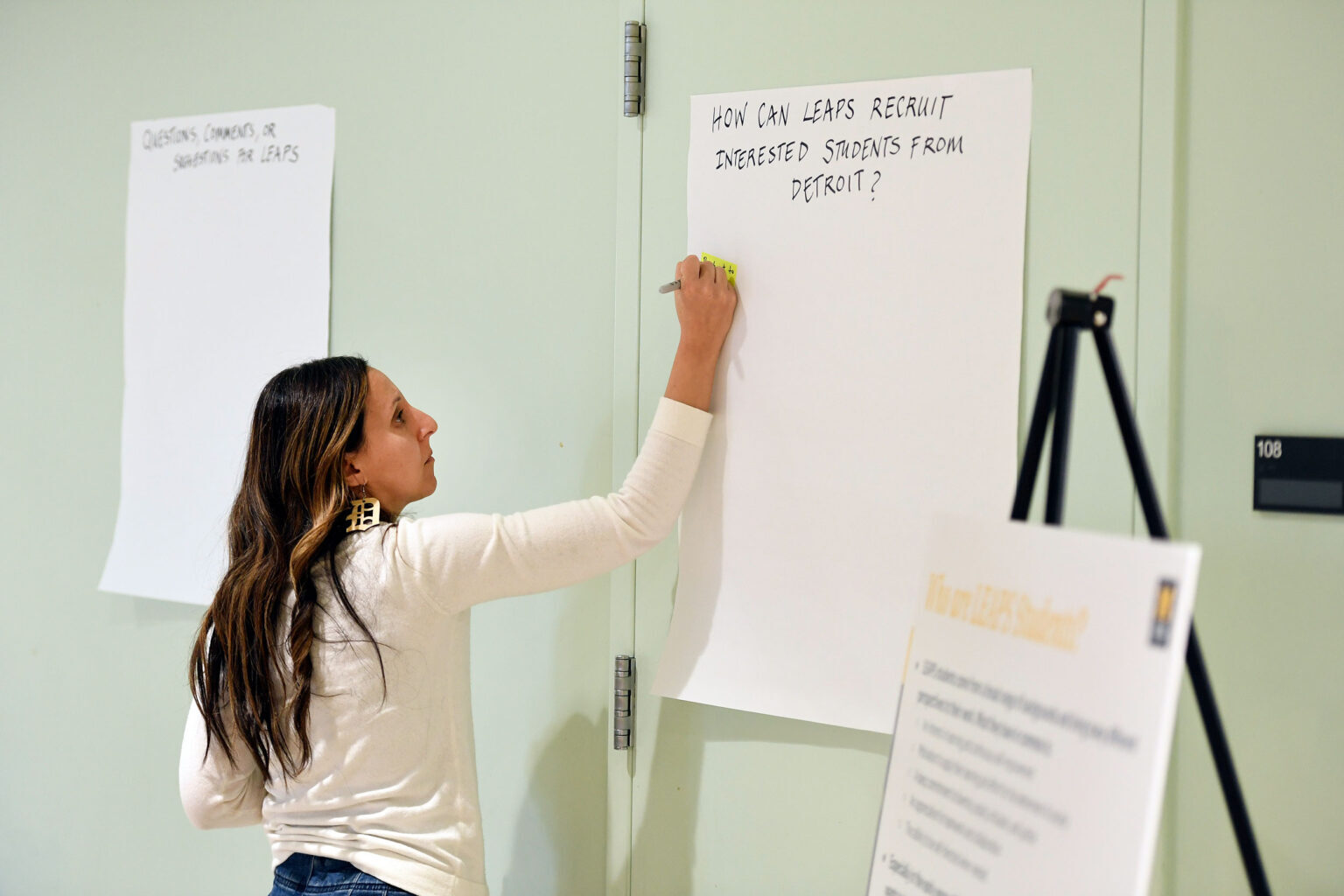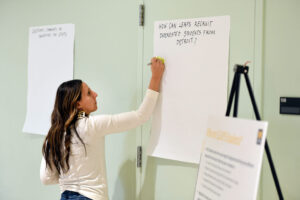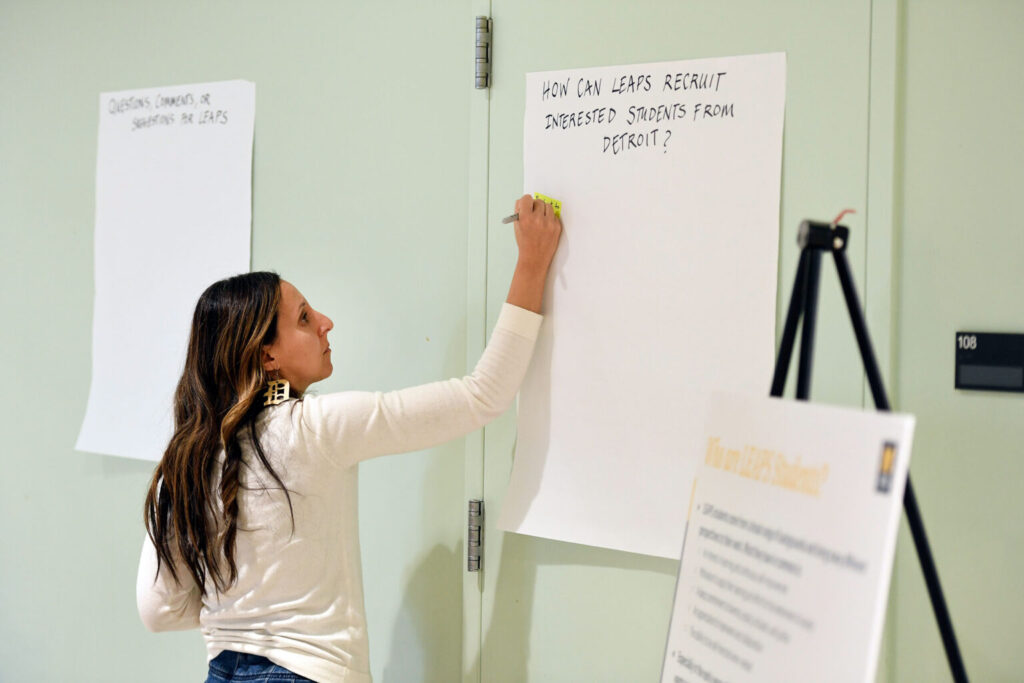Source: Michigan News

Marsal Family School of Education staff member Carla Shalaby provides feedback on LEAPS during an event at the School at Marygrove Elementary. (Photo by Jose Juarez)

Marsal Family School of Education staff member Carla Shalaby provides feedback on LEAPS during an event at the School at Marygrove Elementary. (Photo by Jose Juarez)
Providing students with direct research experience, creative problem-solving skills and a vision of community engagement are the leading purposes of a new University of Michigan degree.
An interprofessional liberal arts major, “Learning, Equity, and Problem Solving for the Public Good” will create learning leaders equipped to tackle complex issues that exist across all areas of society.
In a world grappling with complex societal problems, fields like law, health care, business, education and policy increasingly seek individuals who can look at issues from multiple angles. Addressing real-world challenges requires thinking across disciplinary boundaries and engaging people, communities and organizations in learning and collaboration.
LEAPS is a four-year program leading to a bachelor’s degree in education that will provide students with skills that can be applied in many different fields and strengthen connections between U-M and Detroit. It builds a living-learning community where students learn in the classroom and from the world beyond.
“At a time when we increasingly hear people question the value and role of undergraduate education, we are listening and embracing the opportunity to create a unique and powerful experience for students,” said Elizabeth Birr Moje, dean of the Marsal Family School of Education. “The challenges facing the next generation are clear, but the solutions are not. We are using our expertise to shape students who are prepared to be the problem solvers our world needs.”
Created by a team of faculty, staff and students from across campus, the new Marsal School program will feature apprenticeship-based learning and offer students a distinctive opportunity to live in a newly renovated residence hall on the Marygrove Conservancy campus in Detroit for their first year of college.
“The program will give undergraduate students a unique understanding of the importance of learning with and from Detroit community members to solve real problems,” said Kendra Hearn, associate dean for undergraduate education at the Marsal School. “The skills they will build will transform them into learning leaders who can work effectively across myriad sectors and professions.”
Program co-creator Barry Fishman, an Arthur F. Thurnau Professor and professor of education, said the design of LEAPS builds upon decades of evidence from learning sciences scholarship about how people learn.
“LEAPS is fundamentally about learning,” said Fishman, who also is a professor of information in the School of Information, and professor in LSA’s Digital Studies Institute. “And what better place to study and talk about learning than a school of education?”
Graduates will develop a rich portfolio of work demonstrating mastery in various critical areas for success in future work and learning. They will gain fluency in reasoning and thinking from different perspectives by using other tools and methods. They also will learn how to focus on “public good,” including knowledge of how societies, governments and communities function and evolve, focusing on empathy, ethics and cross-cultural understanding.
Strong Detroit partnership
Starting with a cohort of 20 students, LEAPS learners will spend their first year living and taking classes on the Marygrove Conservancy campus in Detroit before transitioning to Ann Arbor. The campus is home to the Detroit P-20 Partnership and its Marygrove Learning Community.
The Board of Regents approved a lease agreement Dec. 7 for approximately 58,300 square feet within the Marygrove campus. It will include residential, instructional and communal gathering spaces, and access to recreational facilities for LEAPS.
“Undergraduate students will participate in experiential and place-based instruction led by U-M faculty, as well as Detroit community members and institutions,” said Leslie Rupert Herrenkohl, professor of education and co-creator of LEAPS.
“The learning experience will prepare students to be leaders, facilitators and change agents who will make progress in the face of uncertainty, and address persistent social and systemic inequities and knowledge gaps that thwart transformative change at all levels of society.”
The first LEAPS cohort begins its college experience in fall 2024. Application is open now, with a deadline of Feb. 1, 2024.


